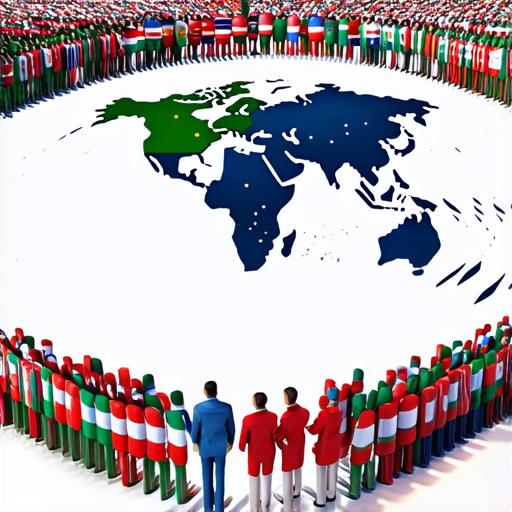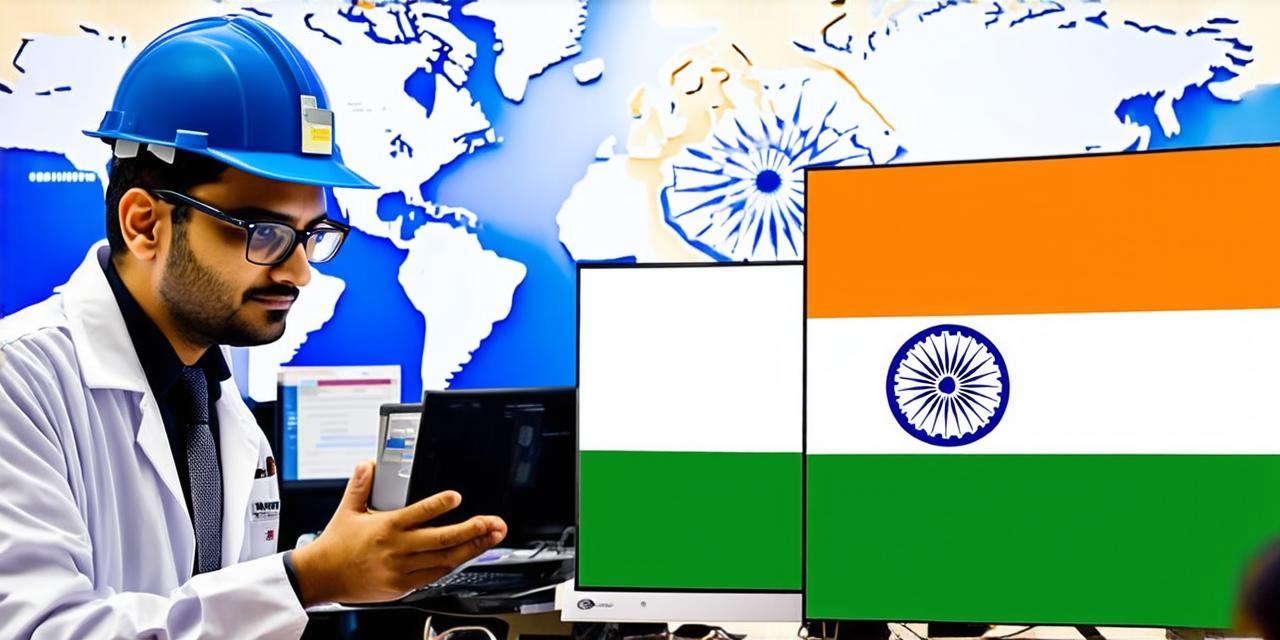
Introduction
Globalization is rapidly changing the way businesses operate today. With the rise of digital technologies and the increasing demand for cost-effective solutions, many companies are turning to outsourcing as a means of achieving their goals. However, finding the right outsourcing partner can be a daunting task, especially when it comes to global collaboration partners.
Benefits of Working with Global Collaboration Partners
1. Cost savings
One of the primary benefits of working with global collaboration partners is cost savings. Outsourcing to a partner in a different country can help businesses reduce labor costs and overhead expenses, which can significantly impact their bottom line. Additionally, by leveraging the expertise of local resources, companies can also save on training and development costs.
2. Access to specialized skills
Global collaboration partners often have access to specialized skills that are not readily available in-house. For example, a company based in the United States may struggle to find a skilled software developer locally, but a partner in India may have several experienced developers on their team.
3. Increased efficiency and productivity
Working with global collaboration partners can also improve efficiency and productivity. When companies work with a partner that has expertise in a particular area, they can benefit from the partner’s experience and knowledge. This can help them streamline their processes and reduce errors, which can lead to increased efficiency and productivity.
4. Diversification of risk
By working with global collaboration partners, companies can diversify their risks. For example, if a company’s primary operations are located in one country, they may be vulnerable to economic downturns or political instability in that region. By partnering with a company in another country, businesses can mitigate these risks and ensure that their operations remain stable even in challenging times.
Case Study: Walmart’s Global Collaboration Partnership with Infosys
Walmart is a multinational retail corporation based in the United States. In 2018, the company announced a global collaboration partnership with Infosys, an Indian-based IT services provider. The partnership aimed to help Walmart improve its supply chain management and logistics operations.
Under the partnership, Infosys provided Walmart with access to its expertise in IT, analytics, and supply chain management. This helped Walmart streamline its operations and improve its efficiency, which led to cost savings and increased productivity. Additionally, by working with a partner in India, Walmart was able to tap into a skilled workforce and gain access to specialized skills that were not readily available in the United States.
Challenges of Working with Global Collaboration Partners
1. Communication barriers
One of the biggest challenges associated with working with global collaboration partners is communication barriers. Language and cultural differences can make it difficult for teams to work together effectively, which can lead to misunderstandings and delays in project delivery.
2. Time zone differences
Another challenge is time zone differences. When teams are working across different time zones, it can be difficult to schedule meetings and collaborate on projects in real-time. This can lead to communication gaps and delays in project delivery.
3. Differences in working styles
Working with global collaboration partners can also present challenges related to differences in working styles. For example, some cultures may place a higher emphasis on hierarchy and authority, while others may prioritize teamwork and collaboration. These differences can lead to misunderstandings and conflicts between teams.
Tips for Finding the Right Global Collaboration Partner
1. Research potential partners thoroughly
When looking for a global collaboration partner, it’s important to do your research thoroughly. This includes evaluating the partner’s expertise, experience, and track record, as well as their cultural fit with your company. You should also assess their communication skills, project management capabilities, and ability to work collaboratively with your team.
2. Establish clear communication channels
Clear communication is critical when working with global collaboration partners. It’s important to establish clear communication channels from the outset, including regular meetings and updates, to ensure that everyone is on the same page.
3. Be flexible and adaptable
Working with global collaboration partners requires flexibility and adaptability. You should be willing to adjust your processes and workflows to accommodate the partner’s expertise and experience. Additionally, you should be prepared to navigate any cultural differences that may arise and find ways to work collaboratively with your partner.
Conclusion
Globalization is transforming the way businesses operate today, and outsourcing has become an essential tool for many companies looking to achieve their goals. Working with global collaboration partners can provide a range of benefits, including cost savings, access to specialized skills, increased efficiency and productivity, and diversification of risk. However, there are also challenges associated with working with global collaboration partners, such as communication barriers, time zone differences, and differences in working styles. By doing your research thoroughly, establishing clear communication channels, and being flexible and adaptable, you can find the right global collaboration partner that fits your needs and helps your business achieve success.
FAQs
1. How do I find a suitable global collaboration partner for my business?
Research potential partners thoroughly, evaluate their expertise, experience, and track record, and assess their cultural fit with your company.
2. What are the challenges associated with working with global collaboration partners?
Communication barriers, time zone differences, and differences in working styles are some of the challenges associated with working with global collaboration partners.
3. How do I establish clear communication channels with my global collaboration partner?
Regular meetings and updates, clear project management processes, and open lines of communication can help establish clear communication channels with your global collaboration partner.
4. What are the benefits of working with a global collaboration partner?
Cost savings, access to specialized skills, increased efficiency and productivity, and diversification of risk are some of the benefits of working with a global collaboration partner.
